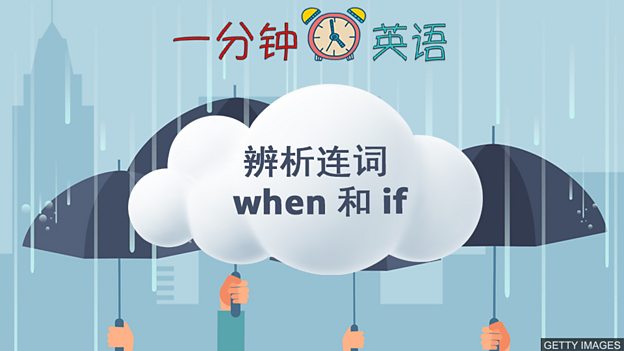内容简介
在陈述事实和描述重复性的动作时,连词 “when” 和 “if” 都适用于一般现在时的句子中。但使用 “when” 时,句意却和使用 “if” 时不同。哪个词用来引导未知的、假设的情况?哪个词引导确定会发生的事情?看视频,学习辨析 “when” 和 “if” 之间的区别。
文字稿
Hi, I'm Roy and today I'm going to tell you the difference between when and if.
Firstly, you can use when or if with the present simple when it is a fact, or a repeated action.
If or when you put water in the freezer, it becomes ice.
We use if for unknown or possible situations.
If it rains today, I'll take my umbrella.
We use when to say we are certain something is going to happen in the future.
When I go home, I'll watch a film.
Compare these two sentences:
If I eat breakfast today, I'll have toast.
I might not eat breakfast.
When I eat breakfast today, I'll have toast.
I will eat breakfast.
Anyway, that's everything for today. I've got go because I'm hungry. If I don't eat breakfast, I get grumpy.
Bye.
用法总结
1. 在陈述事实或描述重复性动作时,“when” 和 “if” 都适用于一般现在时的句子里。
When I go home, I have dinner.
If I go home, I have dinner.
2. 我们用 “if(如果)” 来描述未知的或可能发生的情况。
If it snows this year, I'll go skiing.
If I see your dad, I'll say hello.
3. 我们用 “when(当……时)” 来谈论确定未来会发生的事情。
When I graduate, I'll get a job.
When I get home, I'll watch a film.

